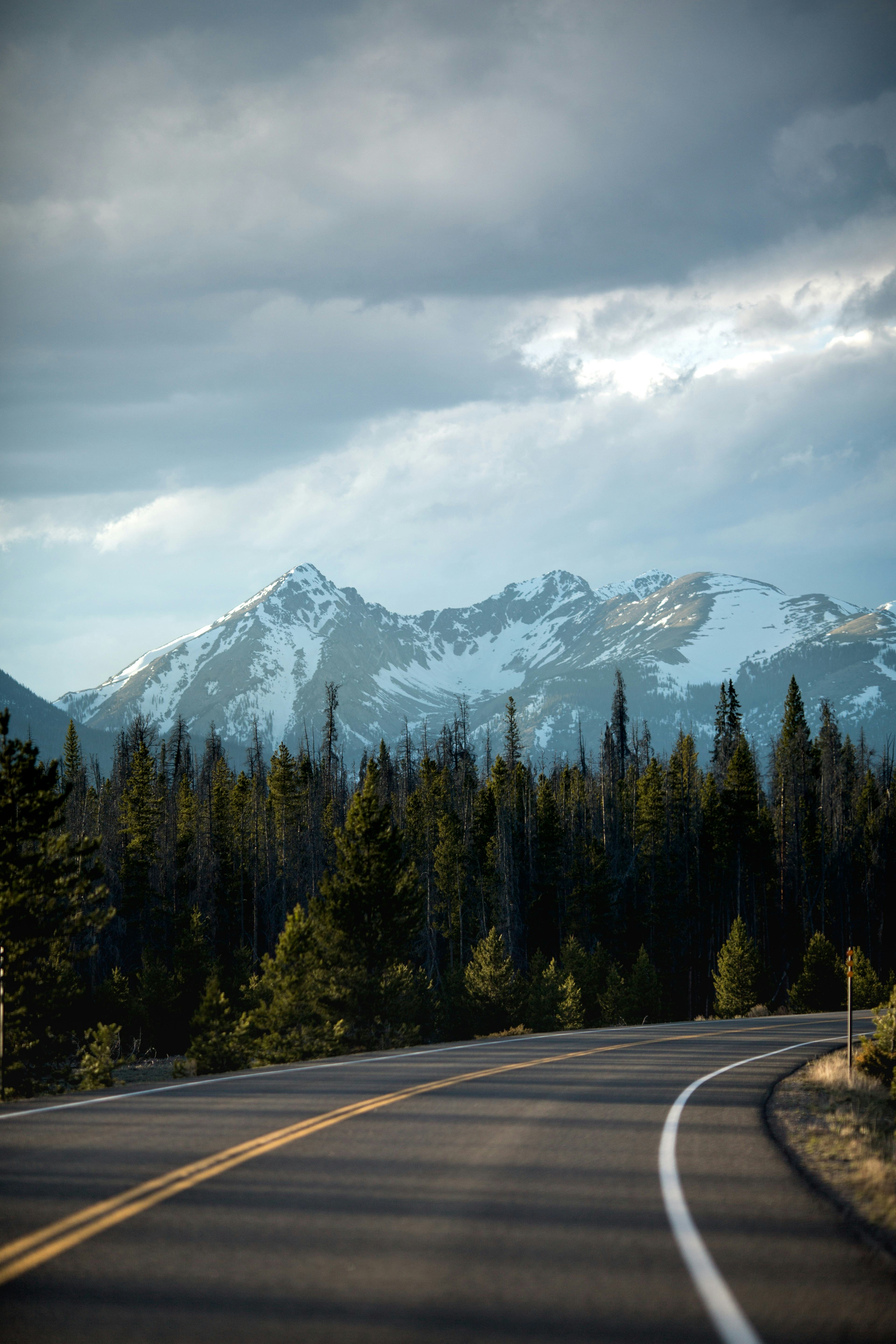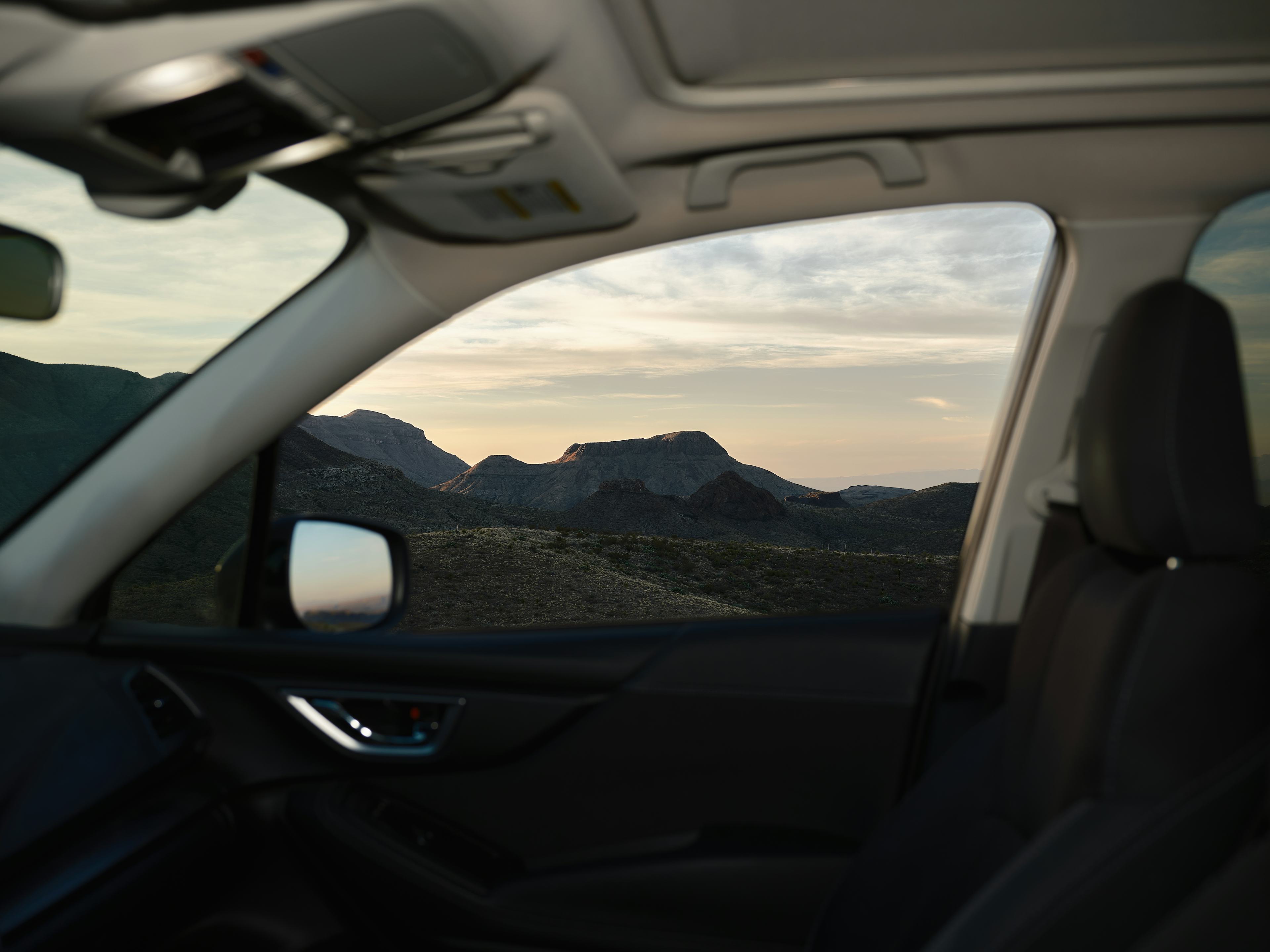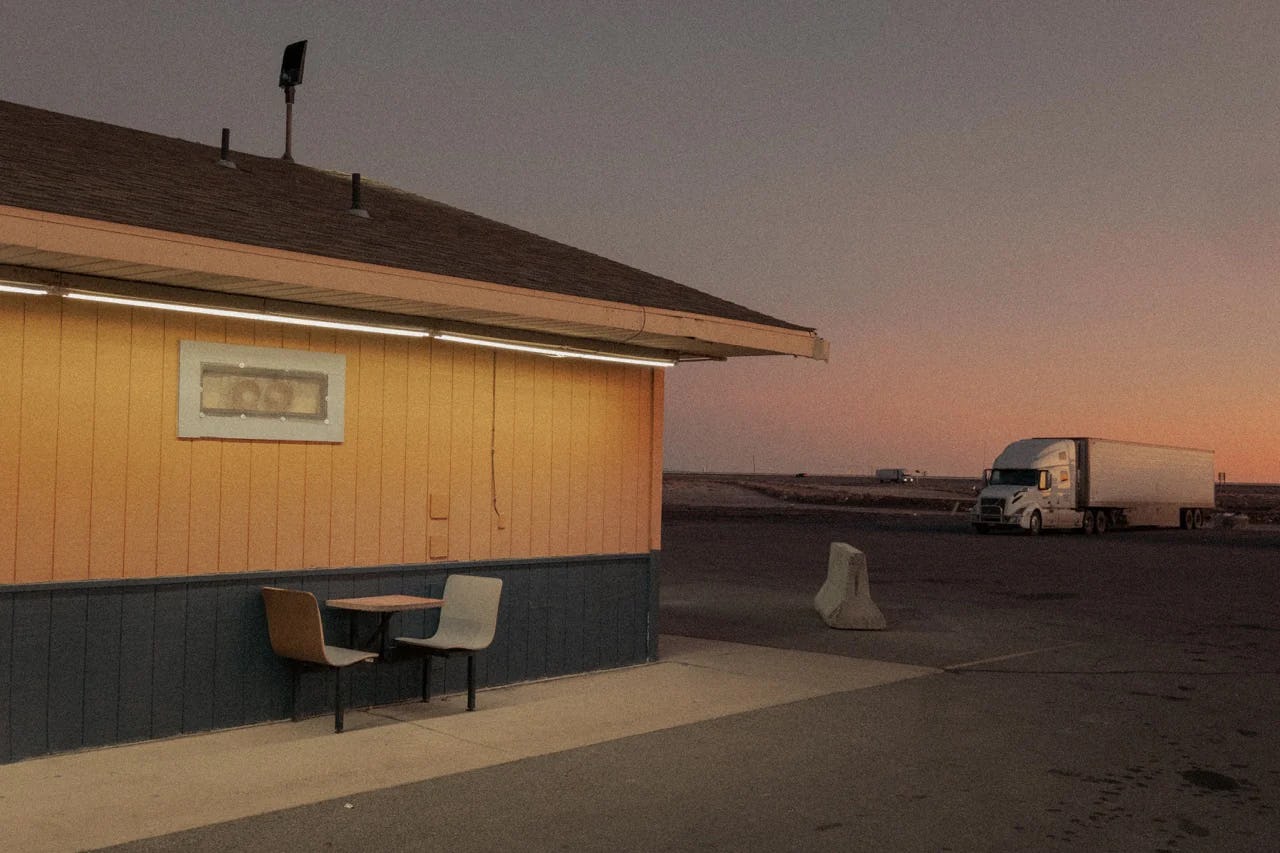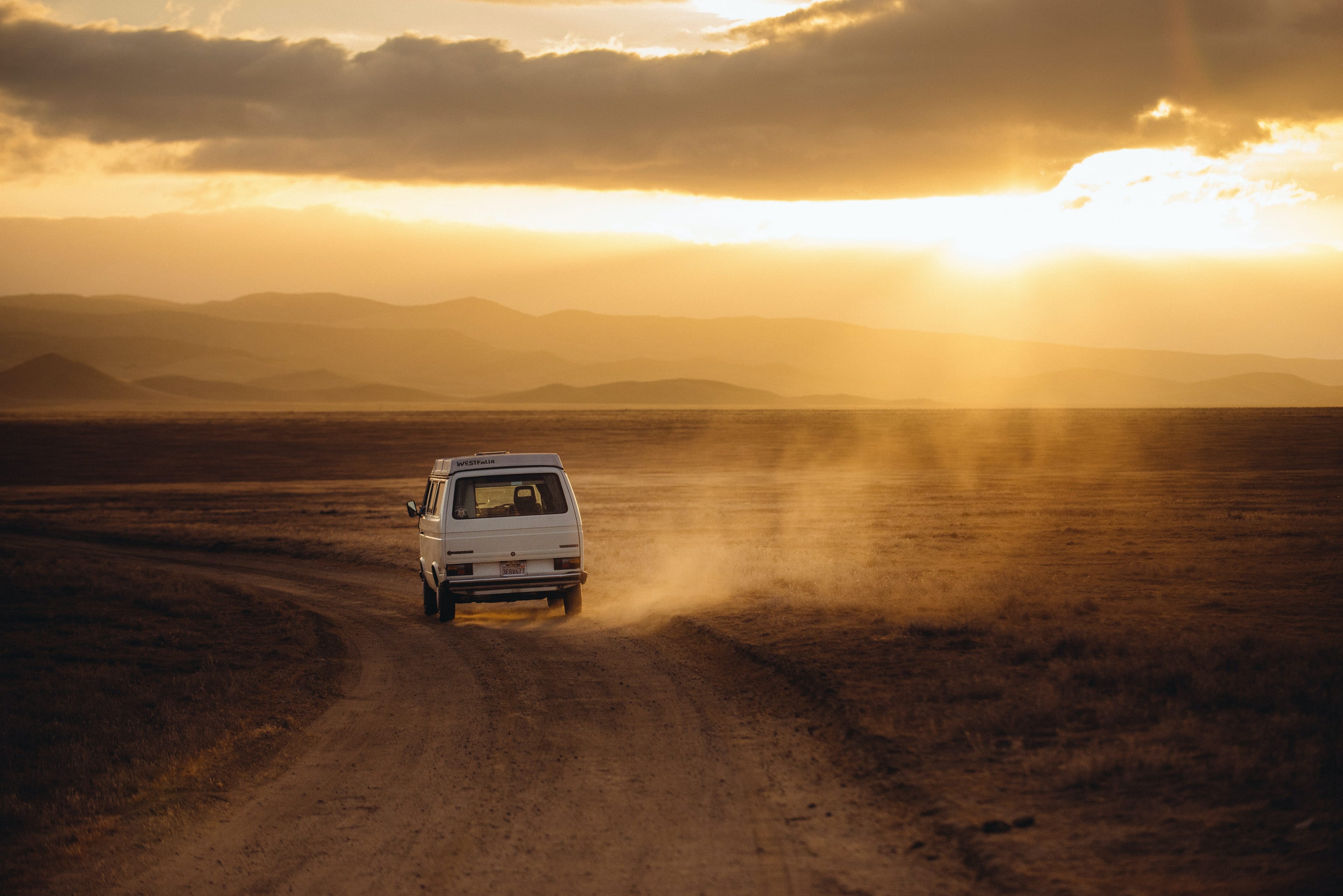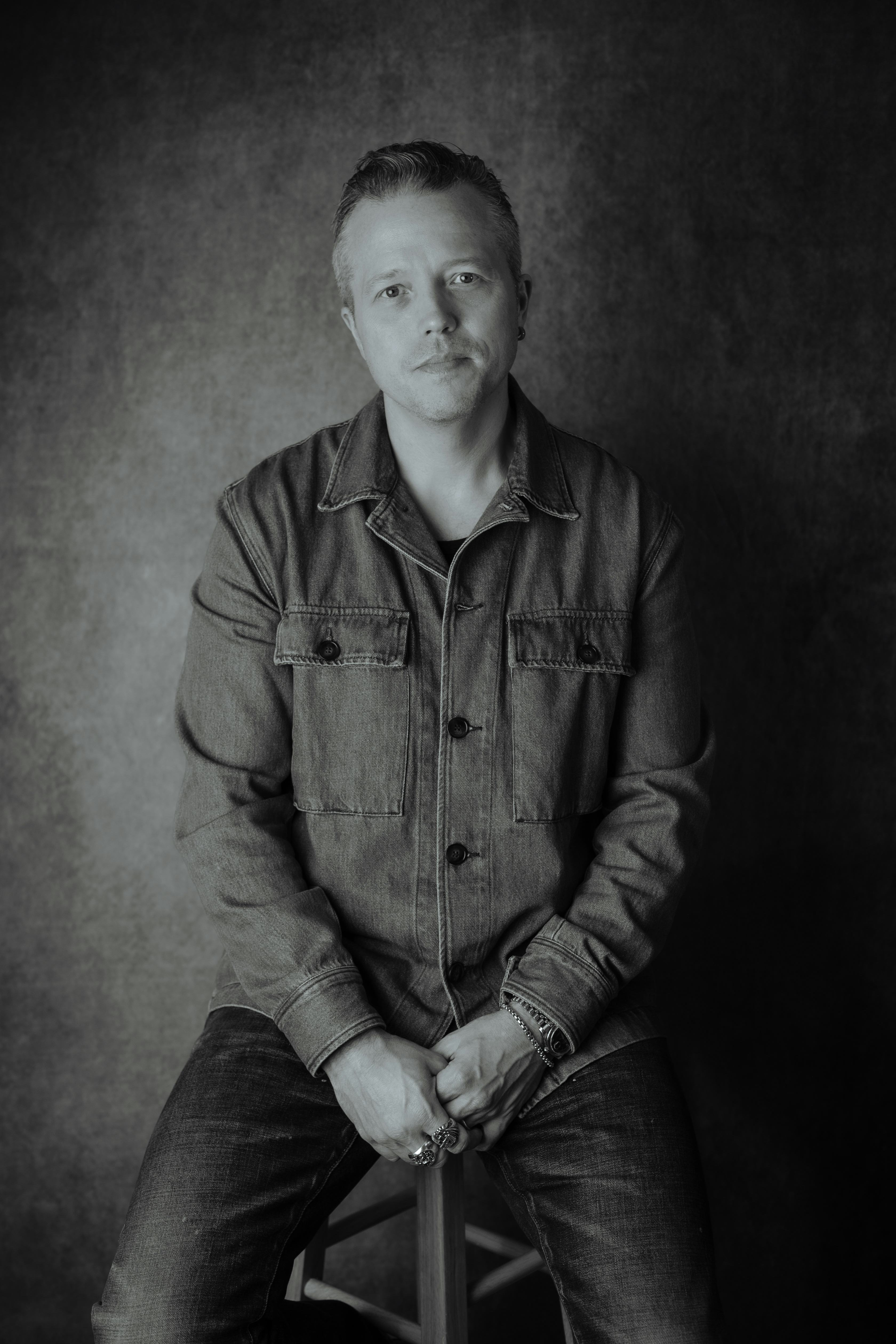
ASK JASON ISBELL his dream ride for a cross-country drive, and the four-time Grammy-winning singer-songwriter doesn’t hesitate. “The tour bus,” he says. “Can't beat it.”
This from a man who played more than 100 shows across the U.S. and Canada last year, supporting Weathervanes, his lavishly praised ninth studio effort. The Alabama native dropped the album, rich with hefty Americana-rock licks and heftier allegories, shortly after HBO aired Running with Our Eyes Closed, a documentary about his record-making process (and marriage, to fiddler and songwriter Amanda Shires). A few months later, Isbell made his big-screen debut in Martin Scorcese’s Killers of the Flower Moon. He’s come a long way since climbing into a Dodge Ram, at 22 years old, to join the Drive-By Truckers, the Southern alt-rockers with whom he honed his chops in the early aughts.
“It was really hard in a van,” he says. “That's a tough life, riding around to 200, 250 shows a year. Having to unload and load your own stuff and drive seven or eight hours a day before every show. I don't have much room to complain these days.”
Isbell grew up outside Muscle Shoals and cut his teeth as a songwriter at FAME Recording Studios, legendary for its ’60s sessions with the likes of Aretha Franklin, Percy Sledge, and Etta James. He later recorded his 2013 breakout album, Southeastern, which drew praise from (and comparisons to) Bruce Springsteen and John Prine. But it’s the road, as much as Alabama, that’s shaped him as a songwriter—and as a human being.
“As a songwriter, the job really is to remind people what we have in common.”
The Wildsam Questionnaire
GAS STATION SNACK OF CHOICE
“The Czech Stop in West, Texas, is the world's greatest gas station. They have their own bakery, and the kolaches are unbelievable.”
HOMETOWN SENSORY NUDGE
“The smell of barbecue.”
FAVORITE WORD
“It might be ‘sunburst,’ because that’s the color of all the golden-era Les Paul Standard guitars, so it’s the word I probably think about most often.”
MOUNTAIN, DESERT OR SEA
“Sea, definitely, because there's humidity. I got to be able to sing.”
“I’ve learned that people are very similar from place to place, in positive and negative ways,” he says. “It’s like how you hear growing up that the bad bigotry happens more often in the South, but then it happens all over the place. The problems are widespread. But the positive things are widespread too.”
Take the close family bonds of his smalltown upbringing, Isbell says. He sees these reflected in immigrant families in cities, “people who have to stay close to one another for similar reasons, for survival purposes.” It’s exactly the kind of reflection, on matters poignant and universal, that Isbell typically weaves into his songs.
“When I was writing in Oklahoma for the new record, the thing that really got me jostled and started me writing about that place was the similarities it shared with where I'd grown up,” he says. “As a songwriter, you see that and you think, maybe this is an opportunity for me to do the job. Because the job really is to remind people of what we have in common.”
Spin Weathervanes and you’ll hear “King of Oklahoma,” a heart-wrenching (if foot-stomping) tale of addiction and its toll. “Strawberry Woman” leads its lovers across the Texas high plains, while “Volunteer” finds its haunted narrator longing to escape the Volunteer State, homeless in a Tennessee campground. “It's very rare that I write a song that doesn't include some kind of location,” Isbell says. “In a metaphorical sense, really, that's all I'm doing—I'm writing about where I'm from and where I am, in all of the different ways.”
Among the places that mean the most to him is Nashville, where he’s lived since 2011 and where he and his backing band, the 400 Unit, play a string of sold-out shows at the Ryman Auditorium each fall. A few days after last year’s residency, Isbell returned to Alabama for his final show of the year, in Huntsville, about an hour from his hometown and the roads he knows by heart. Midway through, he played “Alabama Pines,” a ballad that includes a verse essentially offering detailed driving directions along a stretch of Alabama backroads, complete with a speed-trap warning.
“They're right,” Isbell says. “I made sure. I checked on the map, back when we still had to look at paper maps. I actually thought maybe somebody would be driving this route and thinking, 'Oh, this is exactly what it says in the song.’”
